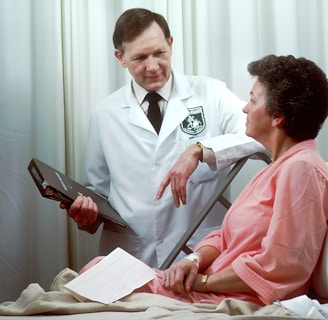Swollen Face or Abscess
Learn about causes, signs, risks, home care, treatments, and FAQs for dental abscesses.
Understanding Swollen Face and Dental Abscess
Comprehensive information on causes, signs, risks, and treatments for swollen face and dental abscesses.


150+
15
Expert Guidance
Trusted Care


What Is a Swollen Face or Dental Abscess
A swollen face or dental abscess typically arises as a result of an infection in the tooth or surrounding gums, leading to a painful build-up of pus. This condition may occur due to untreated cavities, gum disease, or injury. The body reacts to the infection by causing localized swelling and inflammation. Common symptoms of a dental abscess include:
Swelling in the cheek, jaw, or face
Throbbing tooth pain
Redness or warmth in the area
Bad breath or taste
Fever or feeling unwell
If left untreated, a dental abscess can lead to more serious health issues, so it's crucial to seek dental care promptly.


Causes of Dental Abscess and Facial Swelling
Dental abscesses and facial swelling can arise from several common causes. Untreated tooth decay is often the primary factor, allowing bacteria to invade the tooth and surrounding tissues. Gum disease, particularly periodontitis, can also lead to infections that result in abscess formation. Cracked or broken teeth may provide an entry point for bacteria, while failed dental work, such as old fillings or crowns, can contribute to the problem. Additionally, injuries or trauma to the mouth can create openings for bacterial invasion. Finally, a bacterial infection that spreads into surrounding tissues can cause significant swelling and discomfort, requiring prompt dental intervention to prevent further complications. Recognizing these causes is crucial for effective prevention and treatment.


When It’s a Dental Emergency
Facial swelling can signal a serious dental emergency that demands immediate attention. If you notice rapidly increasing swelling, difficulty opening your mouth, or trouble swallowing or breathing, these are warning signs that you should seek urgent care. Additionally, a high fever accompanied by visible pus or discharge is concerning, as is any pain radiating to the ear, neck, or eye. These symptoms indicate that an infection may be present, and untreated infections can spread quickly, leading to potentially dangerous complications. Don’t hesitate to consult a dental professional if you experience any of these signs; prompt action is crucial for your health and safety.


What to Do Before Seeing a Dentist
Before visiting the dentist, there are several steps you can take to alleviate discomfort and prepare for your appointment. First, rinse your mouth with warm salt water to help reduce inflammation and cleanse the area. If you're experiencing pain, consider taking an over-the-counter pain relief medication, such as ibuprofen, to manage your symptoms. Keeping your head elevated can also help minimize swelling and pressure. Applying a cold compress to the outside of your face may provide additional relief. It’s important to avoid squeezing or pressing on the swollen area, as this can exacerbate the issue. Lastly, refrain from attempting to pop the abscess, as this can lead to further complications. These measures can help you feel more at ease before your dental visit.


Emergency Dental Treatments for Abscesses
In cases of dental abscesses or a swollen face, immediate emergency treatments are crucial to alleviate pain and prevent the spread of infection. Dentists may provide the following interventions:
Draining the abscess to relieve pressure and eliminate pus
Prescribing antibiotics to combat infection
Removing the infected tooth if it is beyond saving
Performing a root canal treatment to preserve the affected tooth, if feasible
Cleaning deep gum pockets to ensure thorough treatment and reduce bacteria
Timely intervention is essential, as it not only alleviates discomfort but also helps prevent the potential spread of infection to other areas of the body. Prompt treatment can significantly improve outcomes and promote faster recovery.
Swollen Face Guide
Learn about causes, signs, risks, home care, treatments for swollen face or dental abscess.
Emergency Signs
Recognize severe symptoms like difficulty breathing, swelling, fever, or severe pain requiring immediate attention.


Home Care
Rinse mouth with warm salt water, apply cold compress, and take over-the-counter pain relief as needed.
Consult a dentist for antibiotics or drainage; treatments vary based on severity and underlying cause.
Available Treatments






Frequently Asked Questions
Is a swollen face always a dental emergency?
Not always, but it can indicate a serious issue, such as an infection, that requires prompt attention.
Can I treat an abscess at home?
While some initial care can be done at home, such as rinsing with warm saltwater, professional treatment is crucial.
Will the dentist drain the abscess the same day?
Often, yes, especially if swelling and pain are significant, but it depends on the severity of the condition.
Do I always need antibiotics?
Not every case requires antibiotics; your dentist will determine the need based on the situation.
What happens if I leave it untreated?
Leaving an abscess untreated can lead to more severe infections, possible tooth loss, or systemic health issues, making it essential to seek dental care as soon as symptoms arise.
Facial swelling can become serious — get urgent care now!
Emergency Dentist in Birmingham
Fast, same-day treatment for dental emergencies.
Care
info@emergencydentistnearbirmingham.com
01922 624900
© 2025. All rights reserved.
USEFUL LINKS:
